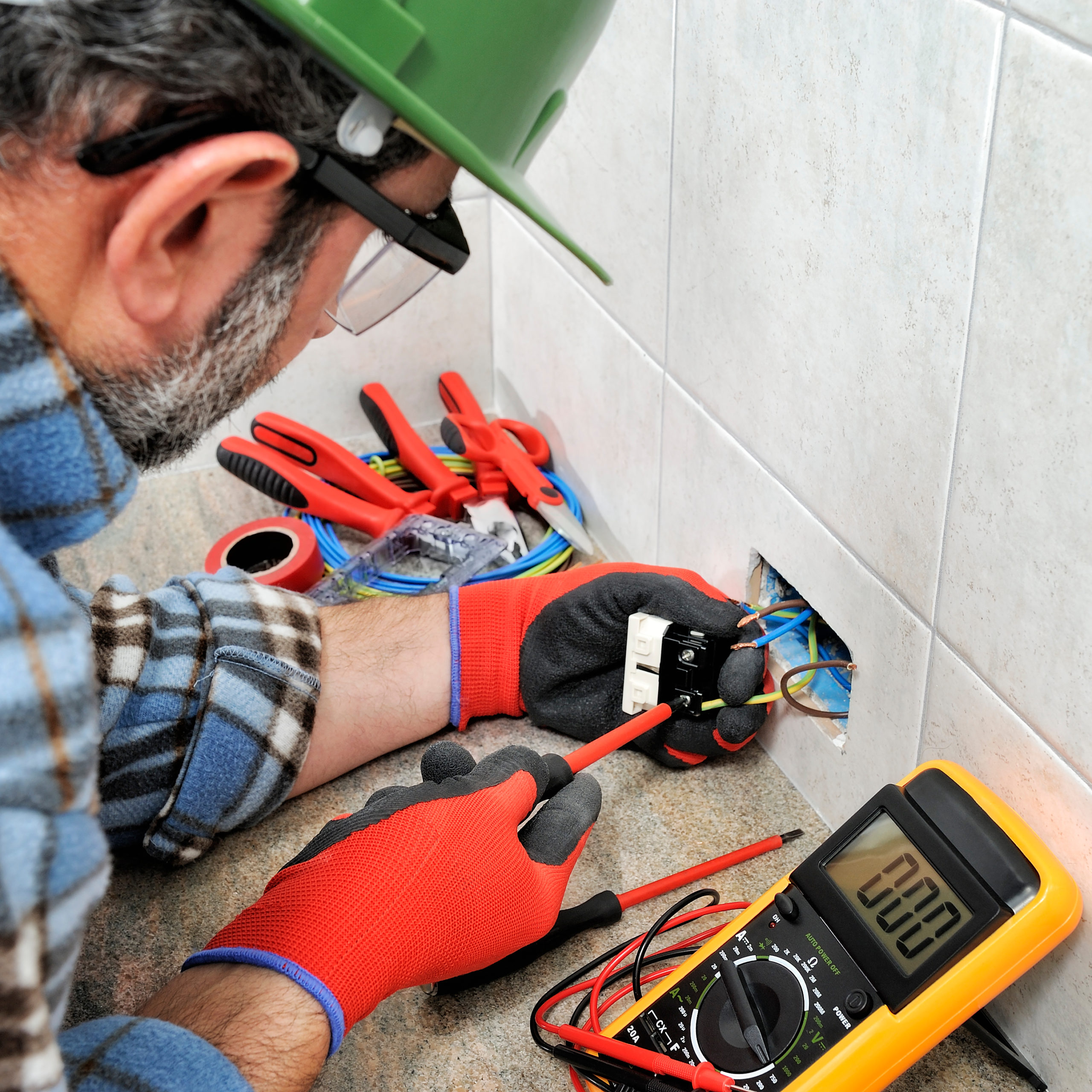7 Tips for Identifying Asphalt Shingle Damage

Growing up we have heard a relative or authority figure remind us; not to put objects in an outlet, never use anything with a cord or plug around water, do not pull a plug out by its cord, or perhaps stay away from fallen power lines. Spring cleaning went a whole new direction when we decided to install a new Wi-Fi dimmer light switch, and light fixture in the dining nook. After opening the package, I realized I had underestimated how detailed of a job it was going to be and wondered why there were so many “extra” wires. Once I understood I was in over my head it was time to contact the professionals.
All around working with electricity can be dangerous for both homeowners and office employees. Some people work with electricity indirectly daily and can be exposed to unseen electrical hazards, while electricians and other professionals work with electricity directly.
May is National Electrical Safety Month and a good time to think about electrical hazards, and safety precautions.
Please find some safety tips which could help you avoid injury:
- Make visual checks to your electrics
- Stay alert
- Wear the proper clothes and safety gear
- Inspect extension cords to ensure they are in good condition
- Use the correct tools
- Inspect tools and equipment before use and store all electrical tools indoors.
- Done be a prankster
- Train your household members or employees on electrical safety.
- Have electrical work completed by a qualified electrician in accordance with applicable building and city and safety codes.
- Do not use electrical gardening equipment outdoors when its wet
- Keep you project area tidy
- Have a professional trim tree branches away from power lines or contact your power company to request this service.
- Exercise caution
- Use GFCIs (ground fault circuit interrupters) to reduce shock. GFCIs are designed to protect people from hazardous ground faults that can arise from plugging in defective appliances or corded equipment.
- Call 811 before you dig to identify the location of underground utilities.
- Next to carelessness short cuts may cause the most injuries. If you are not doing it safely, you are not doing it right!
- DIY attempts result in more than half of all severe electric shocks in the home. Call a qualified electrician
Have you reviewed your electrical preventative maintenance and electrical safety programs to be sure your home and business are operating as intended?
Resources
Employer and Workplace Resources
A variety of resources to our policyholders to assist in raising electrical safety awareness for you home, business or employees.
- Centers for Disease Control and Prevention (CDC)
- Occupational Safety and Health Administration (OSHA) – Electrical Contractors Industry
- National Safety Council (NSC)
- Electrical Safety Foundation International (ESFI)
- National Fire Protection Agency (NFPA)
- NFPA 70 National Electrical Code
- NFPA 70E Standard for Electrical Safety in the Workplace
- Search “Electrical”, “Lockout”, “Arc Flash” or “Hand & Power” for applicable courses
- Risk Management– Be Aware of the Dangers of Electrical Shock
- Risk Management – Electrical Cords and Temporary Wiring – Fire Prevention Checklist
- Tool Box Talk – Flexible Cords/Extension Cords
- Tool Box Talk – Hand and Power Tools
This information is provided solely as an insurance risk management tool. It is provided with the understanding that we are not providing legal advice, or any other professional services or advice. We shall have no liability to any person or entity with respect to any loss or damages alleged to have been caused, directly or indirectly, by the use of this information. You are encouraged to consult an attorney or other professional for advice on these issues.
Related posts





